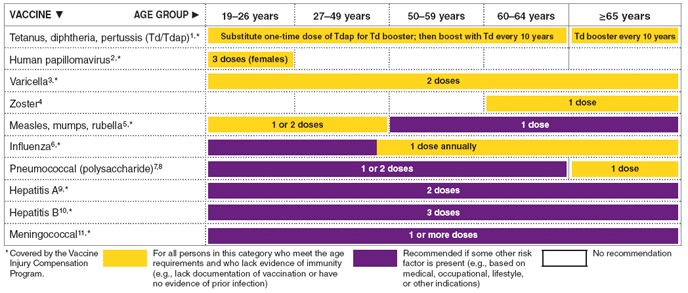
Flu shots are now available at Family Care for the 2016 flu season! Help protect you and everyone you come in contact with for the next few months by getting vaccinated against influenza. Here are some frequently asked questions that have been answered by the CDC about the flu vaccine:
Why should people get vaccinated against the flu?
Influenza is a serious disease that can lead to hospitalization and sometimes even death. Every flu season is different, and influenza infection can affect people differently. Even healthy people can get very sick from the flu and spread it to others. Over a period of 31 seasons between 1976 and 2007, estimates of flu-associated deaths in the United States range from a low of about 3,000 to a high of about 49,000 people.
During recent flu seasons, between 80% and 90% of flu related deaths have occurred in people 65 years and older. “Flu season” in the United States can begin as early as October and last as late as May. During this time, flu viruses are circulating at higher levels in the U.S. population. An annual seasonal flu vaccine (either the flu shot or the nasal spray flu vaccine) is the best way to reduce the chances that you will get seasonal flu and spread it to others. When more people get vaccinated against the flu, less flu can spread through that community.
How do flu vaccines work?
Flu vaccines cause antibodies to develop in the body about two weeks after vaccination. These antibodies provide protection against infection with the viruses that are in the vaccine.
The seasonal flu vaccine protects against the influenza viruses that research indicates will be most common during the upcoming season. Traditional flu vaccines (called “trivalent” vaccines) are made to protect against three flu viruses; an influenza A (H1N1) virus, an influenza A (H3N2) virus, and an influenza B virus. There are also flu vaccines made to protect against four flu viruses (called “quadrivalent” vaccines). These vaccines protect against the same viruses as the trivalent vaccine and an additional B virus.
Who should get vaccinated this season?
Everyone 6 months of age and older should get a flu vaccine every season. This recommendation has been in place since February 24, 2010 when CDC’s Advisory Committee on Immunization Practices (ACIP) voted for “universal” flu vaccination in the United States to expand protection against the flu to more people.
Vaccination to prevent influenza is particularly important for people who are at high risk of serious complications from influenza. See People at High Risk of Developing Flu-Related Complications for a full list of age and health factors that confer increased risk.
More information is available at Who Should Get Vaccinated Against Influenza.
Who Should Not Be Vaccinated?
CDC recommends use of the flu shot (inactivated influenza vaccine or IIV) and the recombinant influenza vaccine (RIV). The nasal spray flu vaccine (live attenuated influenza vaccine or LAIV) should not be used during 2016-2017. Different flu vaccines are approved for use in different groups of people. Factors that can determine a person’s suitability for vaccination, or vaccination with a particular vaccine, include a person’s age, health (current and past) and any allergies to flu vaccine or its components.
When should I get vaccinated?
Flu vaccination should begin soon after vaccine becomes available, if possible by October. However, as long as flu viruses are circulating, vaccination should continue to be offered throughout the flu season, even in January or later. While seasonal influenza outbreaks can happen as early as October, during most seasons influenza activity peaks in January or later. Since it takes about two weeks after vaccination for antibodies to develop in the body that protect against influenza virus infection, it is best that people get vaccinated so they are protected before influenza begins spreading in their community.
Flu vaccine is produced by private manufacturers, and the timing of availability depends on when production is completed. Shipments began in August and will continue throughout October and November until all vaccine is distributed.




